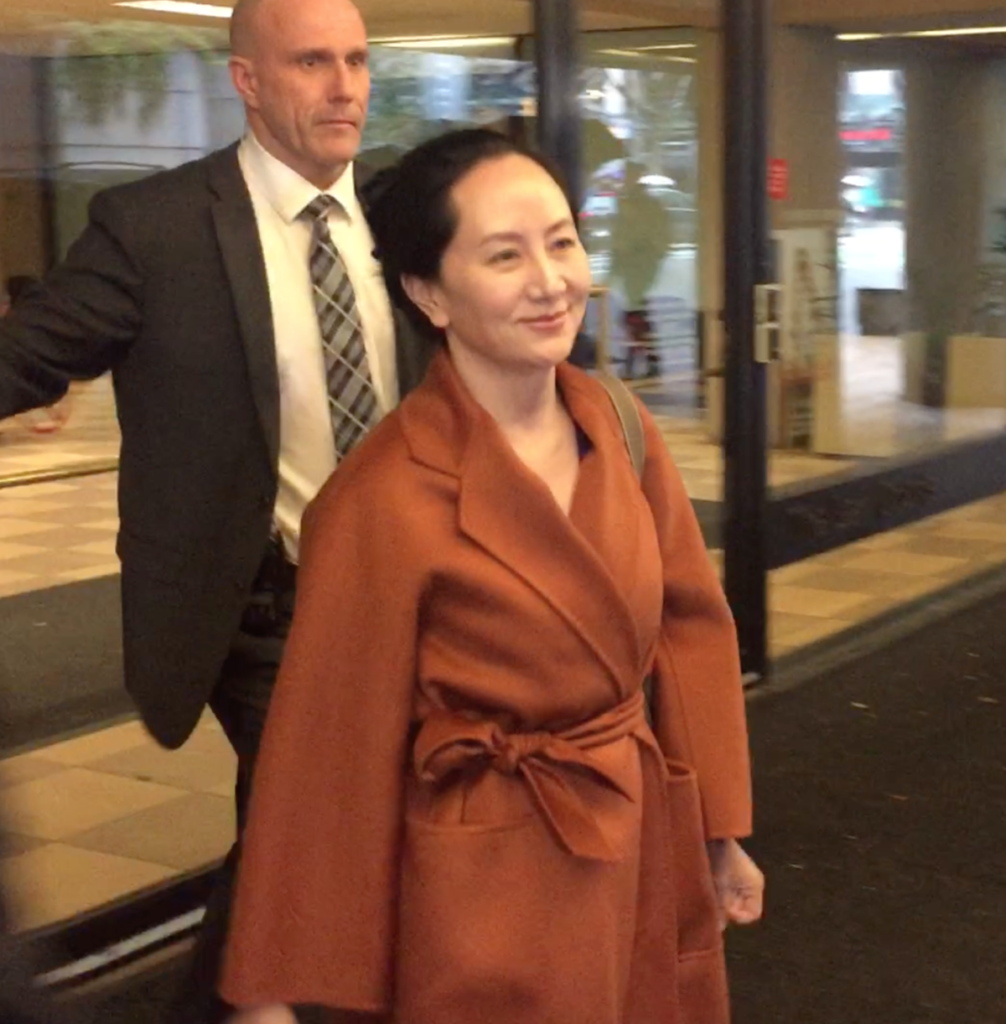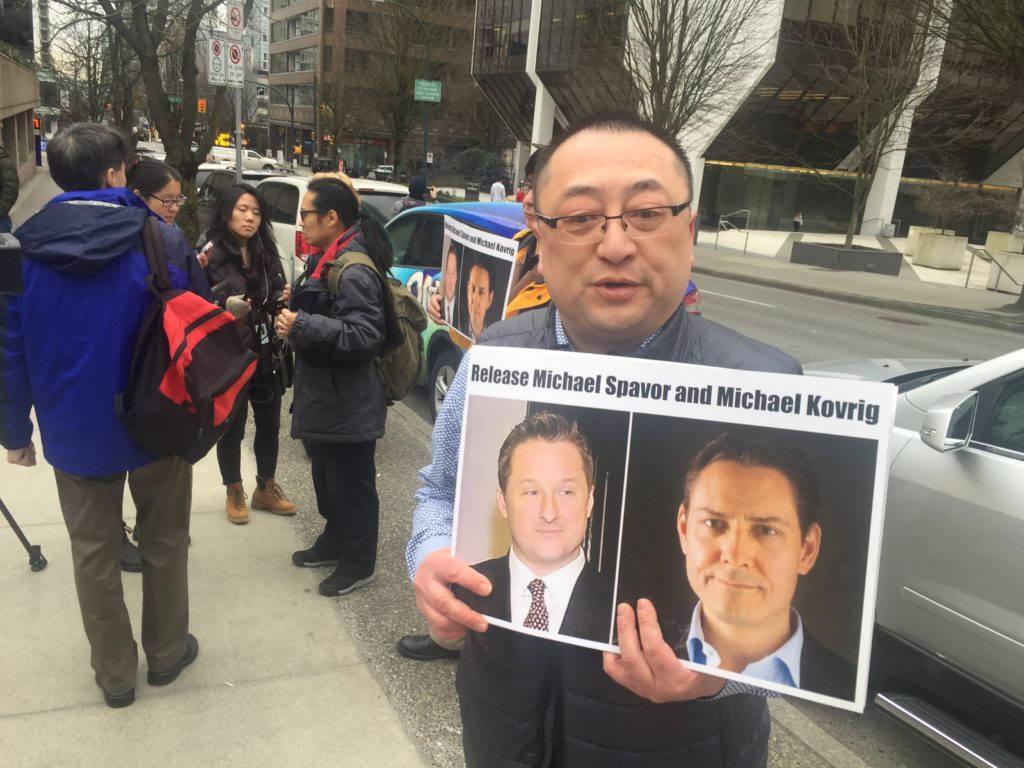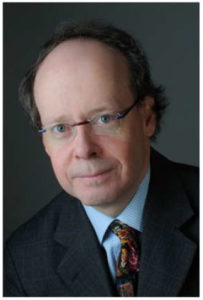
Bob Mackin
Meng Wanzhou’s extradition hearing ended Aug. 18, 991 days since her sensational arrest at Vancouver International Airport.
The Huawei CFO and daughter of the Chinese telecom giant’s founder has lived under curfew in one of her two Vancouver houses since her Dec. 11, 2018 bail from a suburban women’s prison.

Meng Wanzhou and her Lions Gate security bodyguard (Bob Mackin)
She appeared in B.C. Supreme Court in Vancouver with her entourage, wearing a purple dress and the court-ordered surveillance anklet on her lower right leg.
The U.S. accuses Meng of defrauding HSBC during a Hong Kong meeting in 2013. U.S. authorities want her to face a judge in New York because they say she hid Huawei’s ownership of a subsidiary called SkyCom so that it could get a bank loan and sell computer equipment in Iran, contrary to U.S. sanctions law.
Assoc. Chief Justice Heather Holmes reserved her decision after the week-long committal hearing, which ended two days sooner than scheduled. Court will reconvene Oct. 21, when Holmes is expected to reveal when her decisions on the extradition and the defence allegations of abuse of process will be delivered.
Meng, her defence team and lawyers for the Canadian government, who argued on behalf of the U.S., had been in and out of court intermittently for the last two-and-a-half years for preliminary hearings.

Louis Huang outside a court appearance in the case of Meng Wanzhou at the Law Courts in Vancouver on March 8 (Mackin)
As he wrapped up, Robert Frater, the top lawyer in Canada’s Department of Justice, accused Meng’s defence team of “describing the law as they wish it to be — and not as it is.”
“We’ve met our burden, and she should be committed [for extradition],” Frater said.
Meng’s lawyers said the case should be thrown out and Meng freed because the bank suffered no loss.
Frater, however, argued that Canada’s fraud law does not require economic damage. Only that there were acts of dishonesty and deprivation. He also accused Meng’s defence team of aiming to try the case before Holmes.
Extradition hearings are not trials, he said, they are expeditious procedures to determine whether a trial should be held. He told Holmes that her job is to decide whether the case meets Canadian extradition law, not to assess “quality, credibility or reliability of the case, except in a very limited sense.”
The case fraught with geopolitical intrigue sparked a new cold war between China and the west.
Before the hearing began Aug. 11, China upheld the death sentence for convicted Canadian drug smuggler Robert Schellenberg and sentenced Canadian hostage Michael Spavor to 11 years for alleged spying. Both decisions were condemned by Canadian government officials as retaliation for the Dec. 1, 2018 arrest of Meng.

Robert Frater (Government of Canada)
A second Canadian hostage, Michael Kovrig, awaits his verdict on a similar charge of spying. The Chinese government has released no evidence and denied diplomats and reporters access to trials of the Two Michaels.
During court hearings in Vancouver over the last two years, Meng’s legal team has claimed she is the victim of a politically motivated prosecution stemming from the U.S.-China trade war. They also claim Canadian police infringed upon her rights when she was arrested.
In May 2020, Holmes ruled the U.S. extradition application could proceed because of similarities in Canadian fraud law — a principle known as double criminality.
Support theBreaker.news for as low as $2 a month on Patreon. Find out how. Click here.











